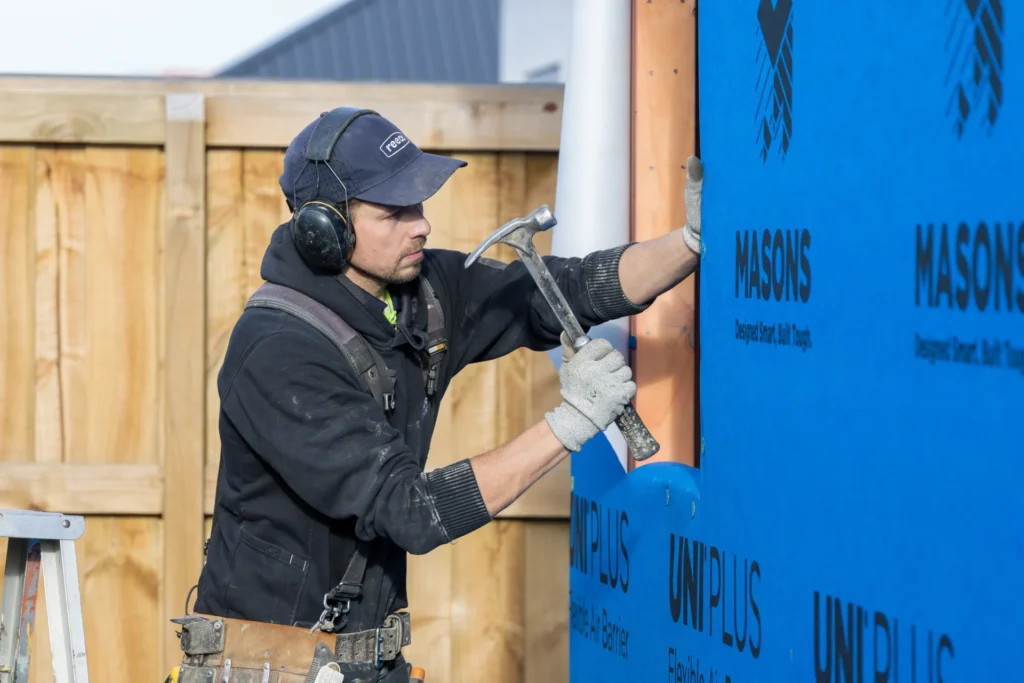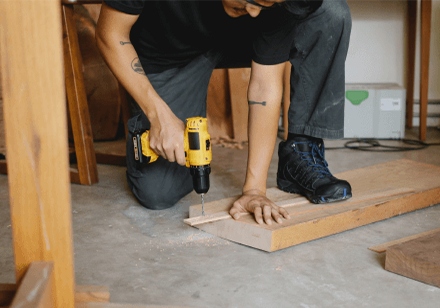Welcome to your go-to guide for checking a builder’s credentials in NZ, because hiring the wrong person can cost you more than just money. Whether you’re planning a new build, renovation, or repair, it’s essential to work with someone qualified, licensed, and trustworthy. Many homeowners assume all builders meet the same standards, but that’s not always the case. In this article, you’ll learn exactly how to verify a builder’s credentials, spot red flags, and ask the right questions, so you can protect your investment, avoid legal headaches, and feel confident every step of the way.
To check a builder’s credentials in NZ, start by confirming they are a Licensed Building Practitioner (LBP) through the official LBP Register. Look for membership with Registered Master Builders, verify their insurance coverage, check their history on the NZ Companies Register, and ask for references and recent project examples. Always request written proof of qualifications and contracts before starting any work.
Table of Contents
Why Builder Credentials Matter In NZ
Hiring a builder in New Zealand is a big decision. Whether you’re building a new home or renovating an existing one, your choice of builder will directly affect the quality, safety, and value of your property. That’s why checking a builder’s credentials is not just recommended, it’s essential. Here’s why credentials matter and what you risk when you overlook them.
Real Risks Of Unqualified Builders
Unqualified builders can cause serious problems. Many homes in New Zealand have suffered from poor construction practices, leading to costly repairs and legal battles. One of the most common issues is leaky homes. These happen when builders don’t follow correct weatherproofing methods, allowing water to enter the structure. Over time, this leads to mold, rot, and major structural damage.
Another risk is failed inspections. If a builder isn’t licensed or trained properly, they may not meet the building code. When this happens, your project could fail council inspections, delay progress, or require expensive rework. You may also have trouble getting a code compliance certificate (CCC), which is needed when selling or refinancing your home.
Legal And Financial Consequences
Hiring someone without the right credentials can lead to legal and financial trouble. If the builder isn’t a Licensed Building Practitioner (LBP), they are not legally allowed to carry out restricted building work. This includes critical structural elements like foundations, framing, and roofing.
Using an unlicensed builder could void your home insurance or warranty claims. In many cases, you might also be personally liable for building code violations. Even worse, if the work goes wrong, you may have limited options to recover your losses through the Disputes Tribunal or courts.
Peace Of Mind From Verified Professionals
Choosing a qualified builder gives you confidence that the job will be done right. Licensed builders must meet specific standards of knowledge and skill. They are also subject to professional conduct rules, which means you’re more likely to get high-quality work.
Verified professionals often belong to industry groups like Registered Master Builders or Certified Builders NZ. These memberships usually come with added benefits, such as independent guarantees, structured contracts, and dispute resolution support.
When you hire a builder with credentials, you know you’re working with someone who takes their work seriously and is accountable to both you and industry regulators.
MBIE And Building Code Compliance
In New Zealand, the Ministry of Business, Innovation and Employment (MBIE) oversees the building system. MBIE sets and enforces the building code, which outlines the minimum standards for construction. Builders must follow this code to ensure safety, durability, and energy efficiency.
Only Licensed Building Practitioners are legally allowed to carry out restricted building work under the Building Act. MBIE maintains a public register of LBPs, which you can search to verify a builder’s license status, area of competence, and disciplinary history.
Following MBIE guidelines protects you from substandard construction. It also helps ensure that your home meets council approval and stands the test of time.
Builder credentials are more than just paperwork, they are a layer of protection for you, your investment, and your future. Always take the time to check a builder’s license, qualifications, and track record before you sign any contract. It’s the most important step in avoiding stress, saving money, and getting the results you want.
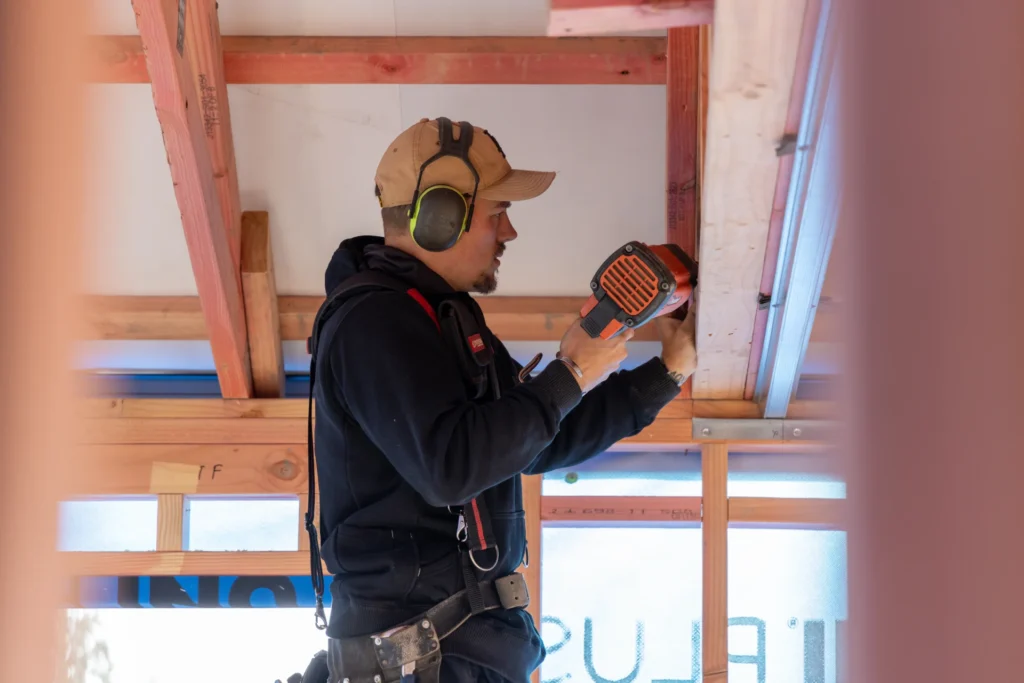
Key Credentials To Look For
Before hiring a builder in New Zealand, it’s essential to check their qualifications. Not every builder operates at the same level, and choosing someone with the right credentials helps protect your investment. The five credentials listed below are critical when evaluating any builder. Each one signals professionalism, legal compliance, and a commitment to quality.
Licensed Building Practitioner (LBP)
- What It Means
A Licensed Building Practitioner (LBP) is approved by the New Zealand Government to carry out or supervise restricted building work. This includes structural elements like foundations, framing, and roofing. An LBP license confirms that the builder has demonstrated the skills, experience, and knowledge required under the Building Act. - How To Verify At LBP Register
To confirm a builder’s license, go to the LBP Register. Enter the builder’s name or license number. You’ll see their license class (e.g., Carpentry, Foundations) and whether it’s current. If the builder doesn’t appear or their license is suspended, that’s a red flag. This is the first and most important step when verifying a builder’s credibility.
Registered Master Builders
- What Membership Indicates
Being a Registered Master Builder means the builder is part of one of New Zealand’s most reputable trade associations. To join, builders must pass a thorough vetting process that includes assessments of workmanship, financial stability, and industry experience. While it’s not a legal requirement, this membership shows a commitment to professional standards. - Access To Guarantees Like Master Build 10-Year Guarantee
One of the biggest benefits of hiring a Registered Master Builder is access to the Master Build 10-Year Guarantee. This gives homeowners protection against structural defects, loss of deposit, and issues if the builder goes out of business. Always ask if this guarantee is available before signing a contract.
Site Safe NZ
- Health And Safety Qualifications
Site Safe NZ offers health and safety training and certifications for people working in the construction industry. Builders who complete Site Safe training have a strong understanding of workplace safety practices. This is especially important if your build involves hazardous tasks, scaffolding, or heavy equipment. - Why This Matters On-Site
Construction sites carry real risks. A builder trained in health and safety helps prevent accidents, delays, and injuries. It also shows they care about their team and your property. Ask if your builder holds a current Site Safe passport or equivalent training.
Public Liability Insurance
- What It Covers
Public liability insurance protects you if something goes wrong during the build. This can include damage to neighboring properties, injury to third parties, or accidental damage to your own home. A reputable builder should have this insurance in place before starting work. - Ask For Proof In Writing
Don’t assume coverage. Request a copy of the insurance certificate and confirm that it’s active. The policy should cover the full duration of your project and reflect the type of work being done. Without insurance, you may be held liable for accidents or damage.
Work History And References
- Why You Should Speak To Past Clients
Experience matters just as much as licenses. A builder may be certified on paper but fail to deliver quality work. Ask for at least two to three recent references and call them. Find out if the builder finished on time, stuck to the budget, and communicated well throughout the project. - Look For Consistency And Relevant Experience
Review their portfolio. Look for projects that match the scale and type of work you need. For example, if you’re building a new home, check if they’ve completed similar full-scale projects. Consistency in results across multiple jobs shows reliability. Builders with nothing to hide will be happy to share their past work.
Checking a builder’s credentials isn’t just a formality, it’s a smart way to protect your home, time, and money. By focusing on these five key qualifications, you’ll be better equipped to hire someone who’s skilled, licensed, and trustworthy.
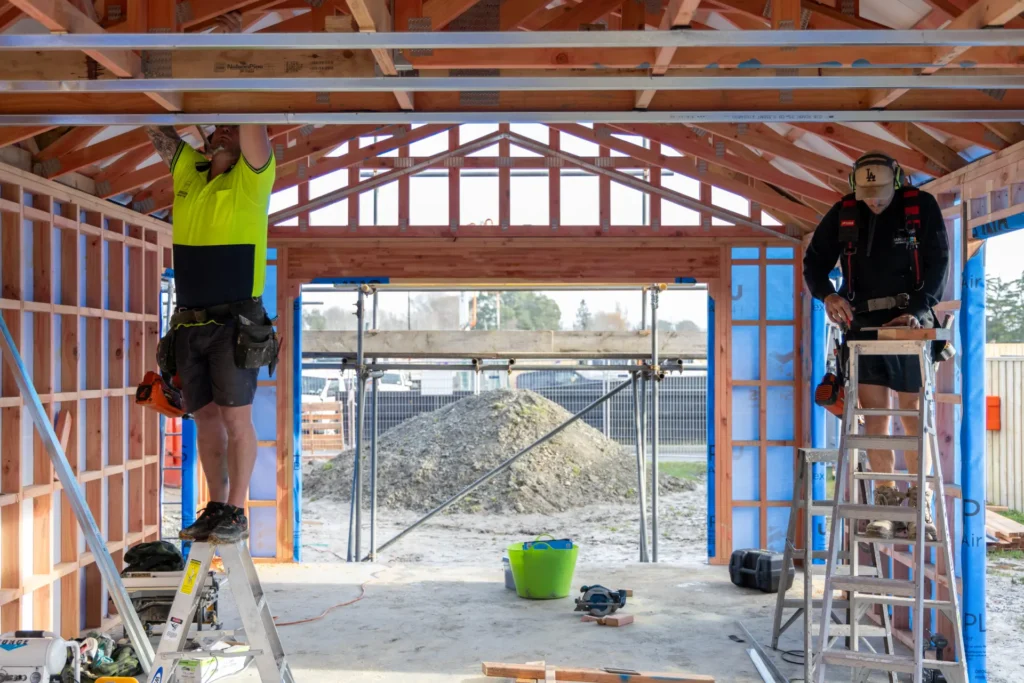
How To Verify A Builder’s Credentials
Hiring a builder is a major decision, and verifying their credentials is one of the most important steps you can take to protect your money, property, and peace of mind. In New Zealand, there are several ways to check whether a builder is qualified, experienced, and legally allowed to do the work. Below is a practical, step-by-step guide that will help you confidently confirm a builder’s credibility before signing a contract or handing over a deposit.
Visit The LBP Register
The first and most reliable way to check a builder’s credentials is through the Licensed Building Practitioner (LBP) Register. This is an official online database run by the New Zealand Government. Any builder who carries out restricted building work, such as work involving a home’s structure or weathertightness, must be listed here. You can search by the builder’s name or license number. The register will show their license class (e.g., carpentry, design), status (active or suspended), and any disciplinary history. If the builder is not listed or their license is expired, it’s a major red flag.
Confirm The Company Name On The NZ Companies Register
Even if your builder is an individual, it’s common for them to operate under a business name. Use the New Zealand Companies Register to verify the legal status of that business. You’ll see whether the company is active, who the directors are, and when it was formed. This helps you confirm the builder’s identity and check how long they’ve been operating. If the business has recently been registered or the name doesn’t match what they gave you, ask why.
Ask For Licenses And Certifications Directly
A professional builder should have no issue sharing proof of their qualifications. This includes their LBP license, membership in industry bodies like Registered Master Builders, and safety certifications from Site Safe NZ. Ask to see copies of these documents and make sure they are current. If a builder only gives vague answers or avoids sharing anything in writing, be cautious.
Check Online Reviews
Online reviews can reveal a lot about a builder’s reputation. Start with Google reviews and expand to New Zealand-specific platforms like NoCowboys.co.nz or Builderscrack.co.nz. Look for patterns in feedback, both positive and negative. Consistent complaints about delays, poor workmanship, or broken promises should raise concerns. On the other hand, builders with a steady record of good communication, quality work, and happy clients are worth shortlisting.
Review Their Building Contract
Before you commit to working with a builder, carefully review their contract. A legitimate builder will always offer a written contract that outlines the scope of work, payment schedule, deadlines, and terms for changes or disputes. The contract should also mention any warranties or guarantees. Never agree to vague verbal agreements or handshake deals. If the builder avoids putting details in writing, that’s a strong warning sign.
Ask For Documentation And Avoid Verbal Promises
Always ask for written confirmation of everything, whether it’s pricing, timelines, or the builder’s license number. Verbal promises are easy to forget or deny later on, especially if issues arise. Documentation protects you and shows that the builder takes their responsibilities seriously. Keep emails, contracts, invoices, and any inspection reports in one place in case you need to refer back to them.
By following these steps, you’ll reduce your risk and make an informed hiring decision. Verifying a builder’s credentials isn’t just a formality, it’s a smart, necessary move for anyone planning a renovation or new build in New Zealand.

Red Flags To Watch Out For
When hiring a builder in New Zealand, spotting early warning signs can save you time, money, and stress. While some issues may seem minor at first, they often point to deeper problems that can affect the quality and safety of your build. Here are the most common red flags to be aware of when checking a builder’s credentials in NZ.
Vague Or Missing License Information
A qualified builder should have no problem sharing their Licensed Building Practitioner (LBP) number or registration details. If a builder avoids the topic, gives unclear answers, or tells you a license “isn’t necessary,” that’s a major concern. In New Zealand, certain building tasks, especially restricted building work, require a valid license. You can verify their status directly on the LBP Register. Any hesitation to provide this information should make you reconsider.
No Written Contract
A verbal agreement isn’t enough. A professional builder will always provide a written contract that outlines the scope of work, costs, timelines, payment terms, and warranties. If a builder tries to move forward without a contract, or says, “We’ll sort it out later,” you’re at risk of miscommunication, disputes, and even legal trouble. The contract protects both sides, and skipping it is a sign they may not follow best practices.
Pushy Behavior Or Unwillingness To Share References
If a builder pressures you to make a fast decision, rush into a deposit, or refuses to give you contact details for past clients, it’s worth pausing. Reliable builders understand that trust takes time. They’re usually proud of their past work and happy to connect you with previous customers. If someone seems uncomfortable with this step, it could mean they have a history they don’t want you to see.
Too-Good-To-Be-True Quotes
If a builder’s quote is far lower than others, be cautious. While competitive pricing is normal, a quote that’s significantly cheaper may signal cost-cutting on materials, unqualified labor, or hidden fees that show up later. Ask for a breakdown of what’s included and compare it with other detailed estimates. Good builders provide transparent pricing and explain where your money goes.
Identifying these red flags early gives you control and confidence. Always trust your gut, if something feels off, it usually is. Taking the time to verify credentials, read contracts, and ask tough questions will protect your project from delays, unexpected costs, or poor workmanship.
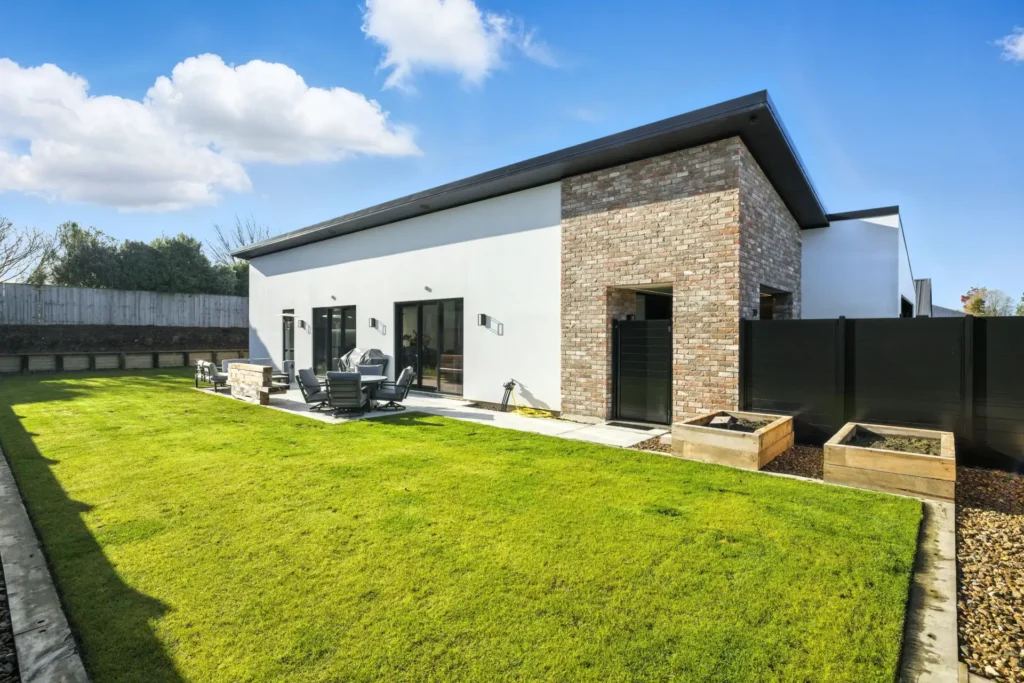
What If They Aren’t Licensed?
Hiring a builder who isn’t licensed in New Zealand can put your home, and your money, at serious risk. While not every building job requires a license, many types of work are legally classified as “restricted building work.” This includes anything that affects a home’s structure or weathertightness, such as foundations, framing, roofing, and external cladding. If your builder isn’t a Licensed Building Practitioner (LBP), and they’re doing restricted work, they’re breaking the law, and that can have serious consequences for you as the homeowner.
You could face delays, compliance issues, or even the need to redo unsafe or substandard work. Worse, councils may refuse to sign off on a Code Compliance Certificate if an unlicensed builder has done work that required supervision by an LBP. That certificate is essential for proving your property is safe and legal to sell or insure.
If you’ve already hired a builder and later found out they’re not licensed, don’t panic, but don’t ignore it either. First, ask them directly if they are an LBP. They might hold the qualification but haven’t added it to your paperwork. If they aren’t licensed and are doing restricted work, stop the job immediately and request that they bring in a qualified LBP to supervise or take over the project.
You should also document everything, including contracts, payments, and communication. If the builder refuses to cooperate, or if the work already done looks poor or unsafe, you can escalate the issue.
Here are the official channels where you can report or get help:
- Ministry of Business, Innovation and Employment (MBIE): They handle LBP complaints and can investigate licensing breaches.
- Consumer NZ: Offers guidance on your legal rights and helps resolve disputes with contractors.
- Disputes Tribunal: If money is involved, and the builder won’t fix the problem, you can file a claim to recover costs up to $30,000.
Acting early protects your investment. Always verify credentials before work begins, and if something feels off, it’s better to pause and ask questions than deal with costly repairs or legal battles later.
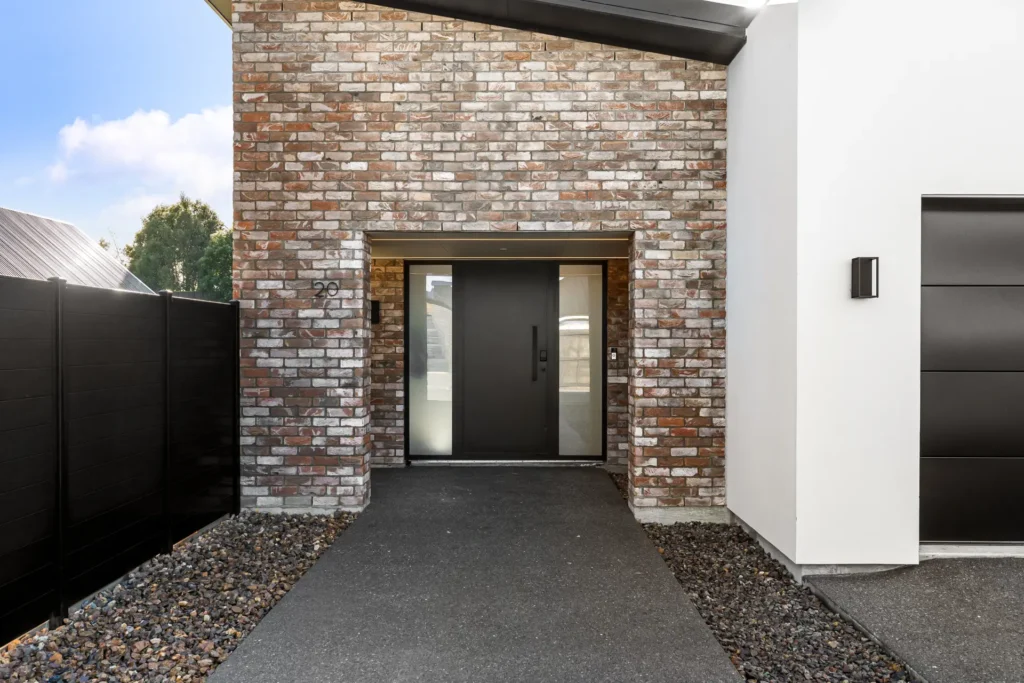
Extra Tips To Protect Yourself
Hiring a builder is a big decision, and even with the right credentials, things can go wrong. That’s why it’s important to take extra steps that give you more control and protection throughout the building process. Here are four simple but powerful ways to protect yourself when working with a builder in New Zealand.
Always Get A Written Contract
A written contract isn’t just a formality, it’s your legal protection. It should clearly outline the scope of work, materials to be used, deadlines, payment terms, and how disputes will be handled. Verbal agreements leave too much room for misunderstandings or false promises. Make sure both parties sign the contract before any work begins. If the builder doesn’t want to provide one, that’s a red flag. You can also get contract templates or advice from MBIE or Consumer NZ to make sure your agreement meets the basic legal standards.
Consider Using A Building Consultant
A building consultant can act as your independent advisor during the project. They’re professionals who understand building codes, regulations, and quality standards. A consultant can inspect the builder’s work at each stage, give you unbiased feedback, and make sure everything stays on track. This is especially useful if you’re building for the first time or don’t have much construction knowledge. Hiring a consultant may add to the upfront cost, but it can help you avoid expensive mistakes later.
Do A Background Check Before Paying A Deposit
Before you hand over any money, take a few minutes to research your builder. Look them up on the Licensed Building Practitioner Register, check their reviews on sites like NoCowboys or Builderscrack, and see if they’ve had any legal disputes. You can also check the NZ Companies Register to verify their business details. Ask for at least two references and speak directly to past clients. If something feels off, trust your instincts and look for another professional.
Use Staged Payments Tied To Milestones
Never pay the full amount upfront. Instead, agree on a staged payment plan. Break the project into phases, like design, foundation, framing, roofing, and final inspection, and release payments only when each phase is completed and inspected. This gives you more leverage and ensures the builder stays on schedule. Make sure each milestone and payment amount is clearly written into the contract. Staged payments also help reduce financial risk in case the builder disappears or the work doesn’t meet expectations.
By following these extra tips, you can avoid common issues and make smarter decisions. You’ll also show any builder that you take the project seriously, and that’s a good thing. If you’re investing time and money into your home, take these small steps now to avoid bigger problems later.
Need help finding a trusted, qualified builder in NZ? Visit us to connect with vetted professionals and get your project started the right way.
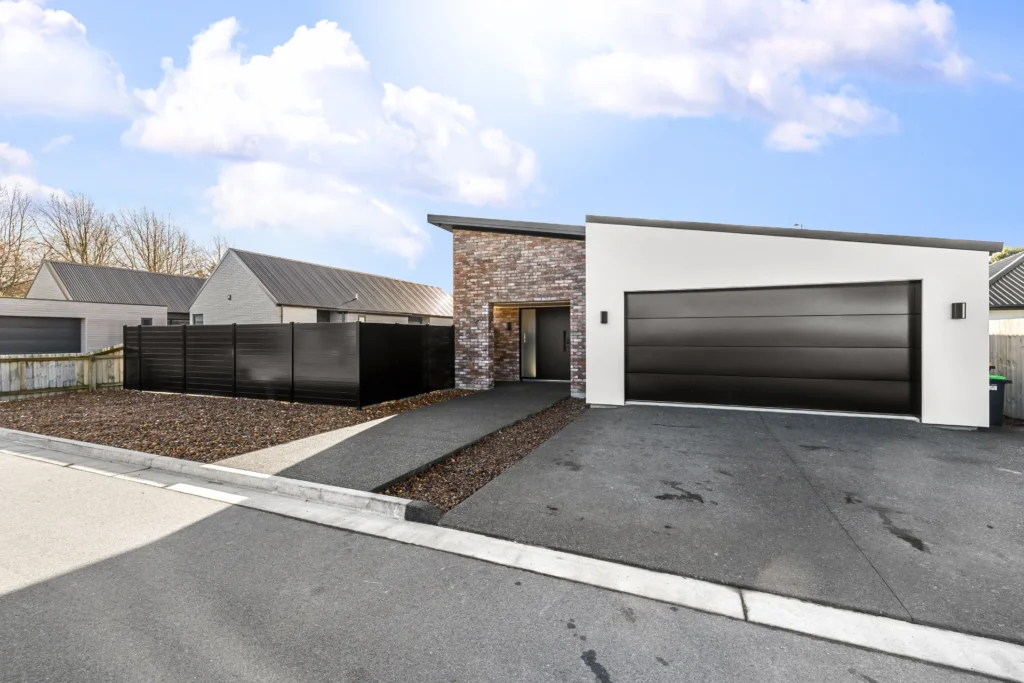
FAQs: About Check Builders’ Credentials In NZ
What does it mean if a builder is an LBP in New Zealand?
An LBP, or Licensed Building Practitioner, is someone who has been assessed and approved by the New Zealand Government to carry out or supervise building work that affects a building’s structure or weathertightness. It ensures the builder meets NZ’s building standards and has the right skills and qualifications.
How do I check if a builder is licensed in NZ?
Go to the official Licensed Building Practitioner Register at https://lbp.govt.nz/. Enter the builder’s name or license number to view their license class, status, and any disciplinary history.
What is the difference between an LBP and a Registered Master Builder?
An LBP is government-licensed, while a Registered Master Builder is part of a private industry association. Master Builders often offer additional guarantees and must meet high standards, but they still need to be licensed to perform restricted building work.
Is it illegal to hire an unlicensed builder in NZ?
It’s not always illegal, but it is illegal for someone who is not an LBP to carry out or supervise restricted building work. This includes structural and weatherproofing work on residential buildings. Always verify licensing before hiring.
What is considered restricted building work in NZ?
Restricted building work includes tasks that are critical to the integrity of a house or small building. This usually covers foundations, framing, roofing, and external moisture protection. Only an LBP can legally carry out or supervise this type of work.
What documents should a builder provide before starting work?
A professional builder should provide their LBP license number, insurance details, a written contract, and any warranty or guarantee information. You should also request references or photos from past projects.
Where else can I verify a builder’s reputation besides the LBP register?
You can check Google reviews, NoCowboys.co.nz, Builderscrack.co.nz, and the NZ Companies Register. Also, speak directly with past clients to ask about their experience.
What are the warning signs of an untrustworthy builder?
Red flags include refusing to show licenses, asking for large upfront payments, having no physical address, avoiding written contracts, or being vague about timelines and costs.
Can I get insurance protection when hiring a builder?
Yes, many licensed builders are covered by public liability insurance and offer third-party guarantees like the Master Build 10-Year Guarantee. Always ask to see proof of coverage before signing any agreement.
What should I do if I’ve already hired a builder without checking their credentials?
Act quickly. Ask for their credentials now, monitor the work closely, and document everything. If problems arise, contact MBIE, Consumer NZ, or consider legal action through the Disputes Tribunal.
Conclusion
Checking a builder’s credentials in New Zealand isn’t just a smart step—it’s a necessary one to protect your home, budget, and peace of mind. By verifying licenses, memberships, and work history, you avoid costly mistakes and make sure the builder you hire meets legal and professional standards. Don’t hesitate to ask questions, request documentation, and speak to past clients. Trust your gut if something feels off. A reliable builder will always be transparent, open, and proud to show their qualifications. For added confidence, use trusted resources like the Licensed Building Practitioner Register, Master Builders NZ, and Consumer NZ. Taking the time to research now can save you from bigger problems later.

